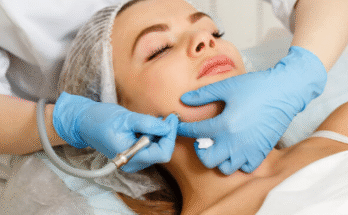Acne is something that many people struggle with at some point in their lives.
It can feel discouraging when you finally manage to clear up breakouts, only to see them come back again.
The good news is that acne does not have to be a permanent part of your daily routine.
By understanding what causes it and making some sustainable changes, you can reduce the chances of it returning and enjoy clearer, healthier skin in the long run.
Understanding Why Acne Keeps Coming Back
To stop acne from returning, it helps to first understand what leads to it in the first place. Acne often develops when the pores of your skin become clogged with oil, dead skin cells, and sometimes bacteria. Hormones, stress, diet, skincare products, and even sleep habits can play a role. For some people, acne tends to flare up during certain times of life, like teenage years or periods of high stress. For others, it may persist into adulthood.
The key thing to remember is that acne is not caused by one single factor. It usually happens because of a combination of triggers. That means preventing it from coming back is less about finding one “miracle” solution and more about creating a balanced approach that supports your skin consistently.
Keep a Gentle Skincare Routine
A simple but consistent skincare routine is one of the most effective tools against recurring acne. Many people fall into the trap of scrubbing their face too harshly or using products that dry out the skin. While it may seem like this helps to control oil, it can actually make the problem worse by irritating the skin and causing it to produce even more oil.
The best approach is to wash your face with a gentle cleanser twice a day, once in the morning and once before bed. Avoid soaps that strip the skin completely and instead choose cleansers designed to balance rather than dry out. After cleansing, apply a lightweight moisturizer, even if your skin is naturally oily. Hydrated skin is less likely to overproduce oil.
Adding sunscreen in the morning is also important, since sun exposure can worsen acne scars and irritate sensitive skin. Look for sunscreens labeled as non-comedogenic, which means they are less likely to clog pores.
Watch What Touches Your Skin
Small everyday habits can make a big difference in whether acne keeps coming back. Frequently touching your face, for example, transfers dirt and bacteria from your hands to your skin. It is also a good idea to regularly clean things that come into close contact with your face, such as pillowcases, makeup brushes, and phone screens.
Hairstyling products can also be a hidden trigger. If you use gels, sprays, or oils, try to keep them away from your forehead and cheeks, since they can clog pores. Even sweat can contribute if it stays on the skin for too long, so washing your face gently after exercising is helpful.
Be Mindful of Your Diet
Food alone does not cause acne, but it can play a role in how your skin behaves. Some people notice breakouts after eating a lot of sugary snacks or highly processed foods. Others find that dairy products or very greasy meals can trigger their acne. Everyone’s body is different, so paying attention to what you eat and how your skin reacts afterward can help you identify personal patterns.
In general, a balanced diet with plenty of fruits, vegetables, whole grains, and lean proteins supports healthy skin. Drinking enough water throughout the day is also important, since it helps the body flush out waste and keeps skin hydrated from the inside.
Manage Stress Levels
Stress is another common factor that contributes to recurring acne. When you are stressed, your body produces hormones that can increase oil production in the skin. This is why many people notice breakouts right before an important exam, work deadline, or major life event.
While it may not be possible to eliminate stress completely, learning how to manage it can help prevent flare-ups. Simple activities like taking daily walks, practicing breathing exercises, journaling, or enjoying a favorite hobby can all make a difference. Getting enough sleep each night also plays a big role, as lack of rest can throw off your hormones and weaken your skin’s ability to repair itself.
Be Patient with Treatments
One of the reasons acne often returns is because people stop treatments too soon. If you are using over-the-counter creams or gels, it may take several weeks to see results. It can be tempting to switch products quickly if you do not see improvement right away, but patience is key. Give your skin time to adjust before deciding if something is truly working for you.
If you find that store-bought options are not helping, consider speaking with a dermatologist. They can recommend stronger treatments tailored to your skin type and the kind of acne you experience. The important thing is to avoid picking at pimples or trying harsh home remedies, as these can cause scarring and make acne harder to manage in the long run.
Think Long-Term, Not Quick Fixes
It is easy to get discouraged when acne returns after a period of clear skin. But instead of searching for a fast fix, it helps to think of skin care as a long-term investment. Clear skin usually comes from consistency rather than one-time solutions. That means keeping up with gentle routines, healthy habits, and mindful lifestyle choices over time.
One way to make it easier is to build skincare into your daily routine so it feels natural rather than like a chore. For example, washing your face as soon as you brush your teeth at night or applying moisturizer right after showering. Over time, these habits become second nature, and your skin benefits from the stability.
Building Confidence Along the Way
Acne can affect more than just your skin; it can impact your confidence too. Many people feel self-conscious when dealing with breakouts, especially when they come back unexpectedly. It is important to remember that you are not alone in this experience and that having acne does not take away from your worth or beauty.
Taking care of your skin is an act of self-care, but so is being kind to yourself in the process. Celebrate small improvements and remind yourself that progress takes time. Confidence grows not only from clearer skin but also from knowing you are doing your best to care for yourself in a balanced way.
Final Thoughts
Stopping acne from returning is possible, but it requires a gentle, consistent approach that addresses both your skin and your overall lifestyle. By keeping up with a simple skincare routine, being mindful of daily habits, making healthy choices in food and stress management, and being patient with treatments, you can greatly reduce the chances of future flare-ups.
The journey to clear skin is different for everyone, but it always begins with understanding your own triggers and treating your skin kindly. With time, consistency, and self-care, you can enjoy long-lasting results and feel more confident in your own skin.

